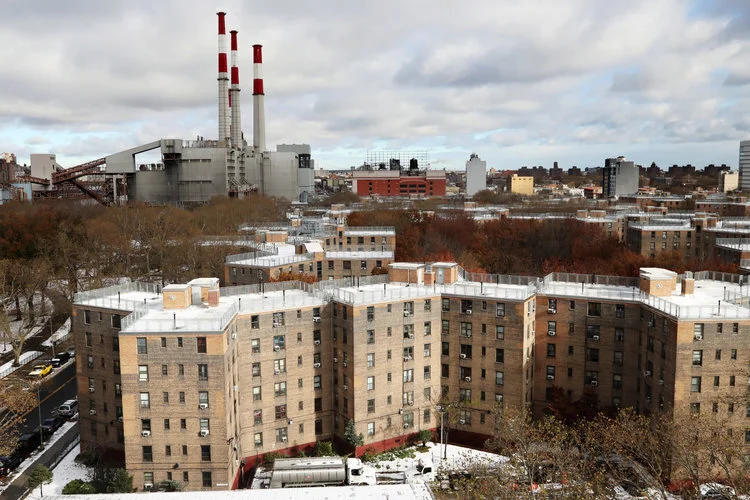NYCHA residents push for power plant transformation
/The Ravenswood Generating Station is on track for a second life as a transmission hub for renewable energy delivered from upstate New York. AP Photo by Mark Lennihan
By Rachel Vick
Over 1,000 residents from Western Queens NYCHA developments and leaders of the NYCHA branch of the NAACP endorsed a project that would bring renewable energy from upstate through the Ravenswood Generating Station on Monday.
The Catskills Renewable Connector is in the last phase of review by the New York State Energy Research and Development Authority as part of an initiative to ease the city’s reliance on fossil fuel energy.
“Environmental justice is a civil rights issue,” said Lynn Spivey, president of the NAACP-NYCHA branch. “For generations, communities of color have been forced to live next to toxic plants – poisoning the air they breathe, spreading illness and asthma, and limiting the spaces where their children can play.”
“Now is the time for justice,” she added. “This proposal, this moment, is our opportunity to come together and create healthy, sustainable communities for everyone.”
The 1,200 MegaWatt project would transform the fossil fuel-powered plant into a conduit for renewable energy, slashing the city’s carbon emissions equivalent to taking nearly 400,000 cars off the road, according to Ravenswood Generating owners Rise Light and Power.
If the proposal is selected by NYSERDA, it would lower carbon dioxide emissions by 15 percent in New York City and by 10 percent across the state by 2030 through the delivery of wind and solar power.
In addition to CO2, fossil fuel-powered plants emit other greenhouse gases and particulate matter which contribute to air pollution — a problem residents of the neighborhood dubbed “asthma alley” are eager to remedy.
To the petition signers, the project “represents hope for environmental justice for our community to breathe cleaner air and accelerate Ravenswood’s transition from fossil fuels to clean energy.”
“We hope the Catskills Renewable Connector is made a reality for the sake of our community, for the sake of our collective health,” they wrote.
If approved by NYSERDA, construction of the Catskills Renewable Connector is slated to begin in 2023 and to be fully operational by 2026.




